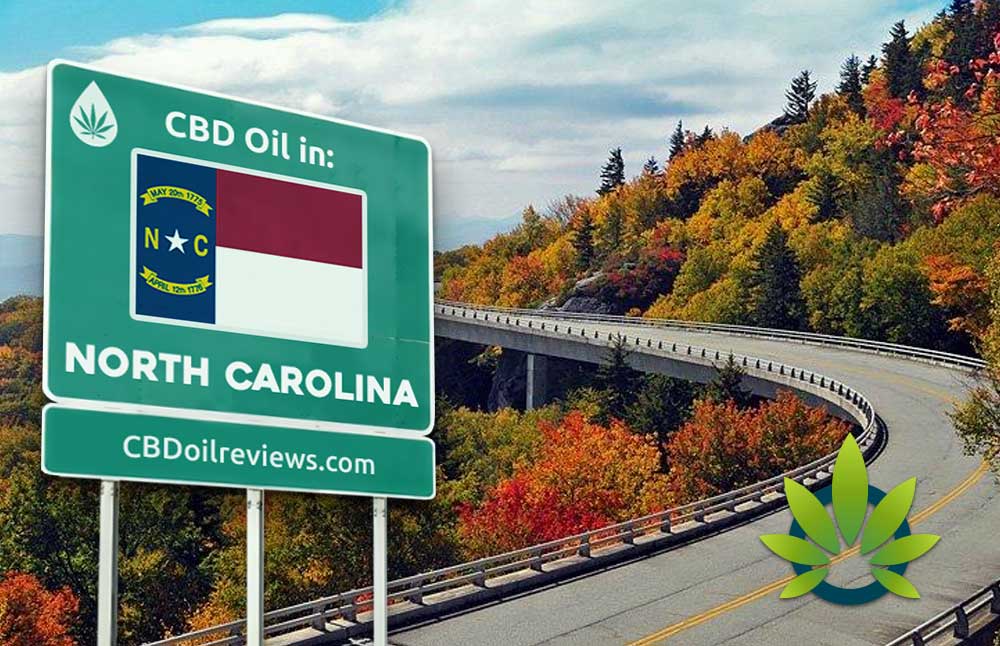CBD (Cannabidiol)
CBD Oil Legality in North Carolina: Cannabidiol State Law Regulations in NC, USA

North Carolina is one of many states attempting to make sense of the massive spike in public interest for CBD and hemp products. Additionally, states like North Carolina are trying their best to fit new CBD legislation into the existing legal framework for cannabis and marijuana products of varying types. For users of CBD and other hemp-derived products, it can be difficult to understand how their favorite products fit into the evolving legal landscape for cannabis and hemp products of all kinds.
In addition to these complex legal questions, a number of legal and scientific misconceptions concerning the nature of CBD products continues to make the industry difficult for many consumers to navigate. For one thing, many consumers still do not understand the difference between hemp-derived CBD and high-THC CBD products. For CBD derived from the industrial hemp plant, the low THC content means that it cannot induce a “high” and will not show up on most modern drug tests.
For North Carolina, the laws would be hard-pressed to be more complicated and confusing for the average consumer. The state has a medical cannabis law, but the program is incredibly limited to only a single type of disease. Aside from this specific use-case, North Carolina does not permit CBD to be used, although it is still sold by many retailers all over the state.
CBD Laws in North Carolina
There are currently three laws on the book regarding CBD and hemp-derived products. First, the state instituted a pilot study for epilepsy alternative treatment via House Bill 1220 back in 2014. The program was particularly successful, and House Bill 766 in 2015 removed the designation of “pilot study” from the legislation. This allowed users of higher-THC CBD through this program to continue to use it in their alternative treatments.
Additionally, the state of North Carolina instituted an industrial hemp pilot program with the passage of revisions to statutory laws from 106-568.50 to 106-568.54. This program made it legal for consumers and producers of CBD products to continue to expand the CBD market all over the state.
Age Requirements for CBD in North Carolina
Age requirements in North Carolina are relatively straight-forward, despite the confusing nature of the laws which created them. For the industrial hemp pilot law under which most CBD products are presently sold, consumers generally need to be eighteen years or older in order to purchase the products. This includes age requirements in most convenience stores and gas stations.
For some head and smoke shops, the nature of the other items sold in the retail store means that sometimes patrons are asked to be at least twenty-one to even enter the store, much less make a purchase of CBD products.
There is no substantive age requirement built into the legal infrastructure for high-THC. However, doctors are required to gain parental consent or the written agreement of a legal guardian before prescribing any cannabis-derived product to a minor.
Types of CBD in North Carolina
North Carolina CBD is available in every major form, but the primary distinction comes from the THC content of the CBD. CBD with a dry weight THC content exceeding the legal limit for the industrial hemp pilot program can only be obtained under the state’s incredibly restrictive medical CBD law. This law makes this kind of CBD only available for those patients who have intractable epilepsy, an incredibly rare and specific condition.
But other forms of CBD contain only small, trace amounts of THC content. These kinds of CBD are available via the industrial hemp pilot program, and these products are sold in stores all over the state, including convenience stores and even gas stations.
Buying CBD Online in North Carolina
It is legal to purchase CBD online in North Carolina. Online retailers offer what is often a much wider variety of CBD products. However, the open-ended nature of CBD laws in the state of North Carolina has made the internet CBD market difficult to comprehend. In particular, consumers wonder if it might be illegal to possess CBD, given the fact that law enforcement has seized industrial supplies of CBD on several occasions.
However, most online retailers will sell CBD to North Carolina citizens with relatively no issue. Consumers need to be aware that ordering CBD which exceeds the state’s industrial hemp THC limit could constitute a crime.
Future of CBD in North Carolina
North Carolina is unlikely to reverse their current position on CBD, which is largely a good thing for constituents looking to continue to use CBD and hemp-derived products within the state. If anything continued public interest in the hemp industry is likely to continue to push the state forward and incentivize an industry which is already growing.
-

 Benefits5 years ago
Benefits5 years agoHemp Oil Health Benefits Vs Side Effects: Proper Use And Optimal Dosage Guide
-

 Marijuana Movement5 years ago
Marijuana Movement5 years agoNew Medical Marijuana Story Showcases Cannabis And Epilepsy’s 176 Year Old Connection
-

 Benefits5 years ago
Benefits5 years agoLiposome Benefits Prove to be a Perfect Pair for CBD (Cannabidiol)
-

 CBD (Cannabidiol)5 years ago
CBD (Cannabidiol)5 years agoCBD Oil For Knee Pain: Symptoms, Causes, Diagnosis, Treatment And Prevention Guide
-

 Guides5 years ago
Guides5 years agoTop 24 CBD Oil Supplements [2019]: Best Cannabidiol Products for Healthy Benefits and No Side Effects
-

 CBD Oil (Cannabidiol)5 years ago
CBD Oil (Cannabidiol)5 years agoKeylor Nutrition American Hemp Gummies: Premium No-CBD Oil Gummy Bears?
-

 CBD (Cannabidiol)5 years ago
CBD (Cannabidiol)5 years agoCBD Oil Legality in Connecticut: Cannabidiol State Law Regulations in CT, USA
-

 Guides5 years ago
Guides5 years agoCachet CBD: Certified Organic Plant-Based Hemp Cannabidiol Drops, Gummies and Topical













